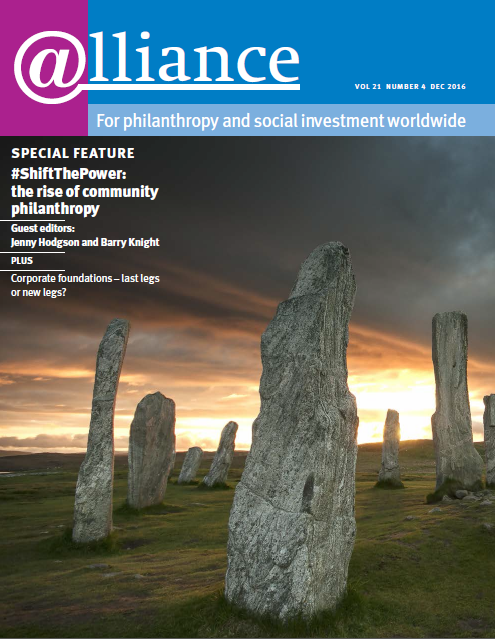Passionately convinced of the need to advance philanthropy, I welcome banks’ engagement on this issue, as highlighted in the article on banks acting as philanthropy advisers in the September 2016 issue of Alliance. The more wealth advisers are acquainted with how to deliver social impact, and its many related challenges, the better. The same is also true for lawyers, tax experts, trust managers and other financial intermediaries. As wealthy individuals’ trusted advisers, they are strategic and powerful ‘entry points’ into philanthropy. That said, one should indeed be aware of the potential shortcomings and risks, as highlighted throughout the article.
I believe a few targeted questions can help a donor separate the wheat from the chaff:
- How knowledgeable and experienced in the social sector is the philanthropy adviser who will accompany you? Will you be given references to talk to in confidence to understand their value-added?
- Does your philanthropy adviser have targets or incentives related to asset acquisition? S/he should not.
- Beyond introductory discussions, will the advisory services be billed to you? They should! There is no such thing as a free lunch.
- If you set up a legal structure, does your banker expect to be part of its board? S/he should not.
- More broadly, is the bank’s social engagement coherent with its claims – or is it just smart marketing?
The more wealth advisers are acquainted with how to deliver social impact, and its many related challenges, the better.
If you are comfortable with the answers, feel free to proceed. Keep in mind that as you progress on your philanthropic journey, your needs will most certainly change. So might your adviser.
Karin Jestin
Independent philanthropy adviser and former head of philanthropy at Swiss private bank Lombard Odier
On the same topic: ‘Funders need to use knowledge and exert influence‘ by Lena Baumgartner, ‘Give power to grantees‘ by Angela Seay, and ‘Democratize philanthropy‘ by Eugenie Harvey.





Comments (0)